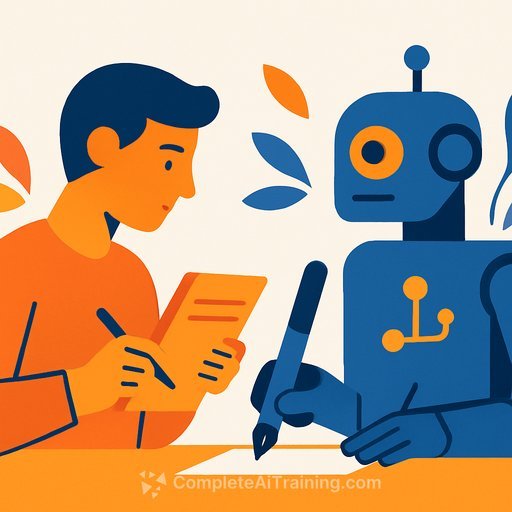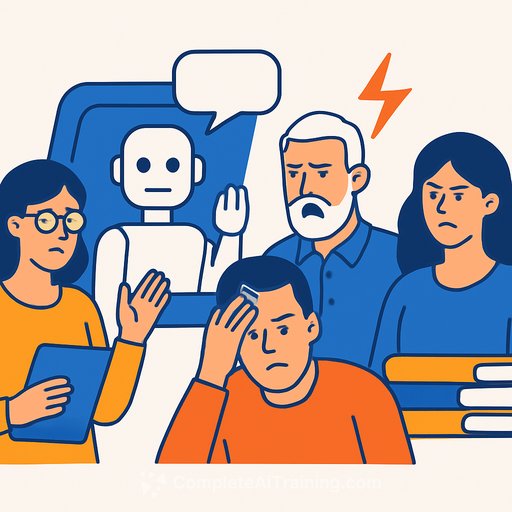Writers in the AI Era: Why Your Life Matters More Than Your Prose
AI can produce a dozen clean drafts in seconds. Useful? Yes. Final? No. The gap that remains is the part only you can supply-lived experience, perspective, and the courage to say something true.
Writer and attorney Jung Ji-woo is clear on this: writing won't disappear. In his view, AI can assemble information and shape tidy first drafts, but it cannot live a life. Reflective and lyrical essays-work that carries the weight of experience-still depends on a human being.
What Changes for Writers
The bar moves from "perfect sentence" to "felt truth." Readers care less about polish and more about whether they learned something they can use, and whether your life aligns with your words.
That shift puts the author at the center. If readers trust the person, they'll tolerate a rough edge. If the writing is technically strong but feels hollow, they'll bounce.
From Polish to Context
Think about contemporary art: technique matters, but the artist's philosophy, intent, and context drive the value. Writing is heading in the same direction. The pieces that stick compress a life into sentences that ring true.
Jung's prediction: the life and influence of the writer will matter more than the elegance of the prose. Readers won't just read you because the writing is good-they'll read you because you are someone worth learning from.
Connection Is the Point
Language exists to connect. That's why writing and reading won't fade. People are endlessly curious about other people's lives.
Jung writes to connect-his first book was a note to his sister. Other authors have said the same in interviews: what endures is the human link between writer and reader.
Practical Playbook for Writers Using AI (Without Losing Your Voice)
- Use AI for scaffolding, not soul. Draft outlines, summarize research, and generate alternatives-but write the reflective core yourself.
- Keep a life log. Capture scenes, conflicts, and small sensory details daily. These moments become the backbone of essays.
- Compress experience into claims. For every piece, ask: what did I learn that another human can use tomorrow?
- Run a sincerity check. Would you stand by this in front of someone you respect? If not, rewrite until it's honest.
- Publish with context. Share the "why" behind your stance: your constraints, trade-offs, and what changed your mind.
- Protect your work. Learn the basics of IP for writers and AI. See the overview from WIPO here.
- Read the humanities to think better. Depth comes from wrestling with ideas, not skimming hot takes.
- Write to a person, not a crowd. Aim each piece at one specific reader. It sharpens your language and keeps it human.
A Simple Workflow That Balances Speed and Substance
- Prompt AI for a brief: audience, problem, angle, and 3-5 subpoints.
- Pull facts and counterpoints. Keep sources. Cut anything you haven't lived or verified.
- Draft fast from your notes. Add scenes, tension, and one hard-earned insight.
- Use AI to tighten structure and spot redundancies; restore your voice in a final pass.
- Publish with a lesson + a next step for the reader. Ship, then iterate.
What Readers Actually Feel
Readers pick up on integrity. They can sense when the sentences are smooth but the center is hollow. They can also forgive a rough edge if it comes with a real story, a risk taken, or a lesson paid for in time.
Life is finite. That awareness gives human writing its charge. AI can simulate patterns; it can't carry the weight of mortality, love, loss, or loyalty. Your job is to put that weight on the page-cleanly, bravely, and often.
Helpful Resources
- Explore practical tools that can speed up your drafting without diluting your voice: AI tools for copywriting.
Keep writing. Use the machine for what it's good at. Live deeply so you have something worth saying. Then say it in a way only you can.
Your membership also unlocks:






